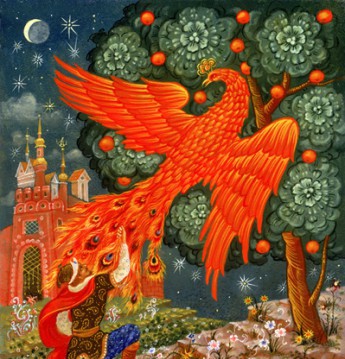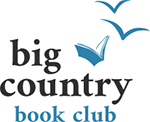 Getting your book written and published is one thing. Getting it noticed in the flood of new titles is quite another! Today, I’m interviewing publicity specialist Emma Noble, who’s just released a book that answers a lot of questions about how to plan and run a great book publicity campaign. It’s a book that will be of much interest both to authors and small publishers.
Getting your book written and published is one thing. Getting it noticed in the flood of new titles is quite another! Today, I’m interviewing publicity specialist Emma Noble, who’s just released a book that answers a lot of questions about how to plan and run a great book publicity campaign. It’s a book that will be of much interest both to authors and small publishers.
Emma, your book, The DIY Book PR Guide: The Happier Guide to Do-It-Yourself Book Publicity in Seven Easy Steps, has just been published. Can you tell us something about it, how it came about, and who it’s aimed at?
It’s aimed at self-published authors mostly, but also at traditionally published writers who want to better understand what their inhouse publicist is doing for them, and perhaps even to support their efforts. I wrote it out of sheer frustration, actually, at the number of authors I wasn’t able to take on because of time constraints. I wanted to try to help them in some other way. Book publicity is most definitely not rocket science but it’s convoluted and time-consuming if you don’t know what you’re doing. The DIY Book PR Guide lays down the basics of planning and executing a campaign that is tailormade for your book.
You run a boutique communications and book publicity agency, Noble Words. What kind of services do you offer writers and publishers? And what sorts of projects have you been involved with?
I mostly work with big publishers who need a helping hand during busy periods, and I tend to be given campaigns that might be slightly more complex or time-consuming than usual; for example, footballer Chris Judd’s nationwide tour to promote My Story in late 2015. I also work with an increasing number of self-published authors on promoting their books. This month, I’m working with: social enterprise Thankyou on their book-slash-crowdfunding campaign Chapter One; self-published YA urban fantasy writer Karyn Sepulveda on Choosing Xaverique; novelist Lynnette Lounsbury on her modern take on a beatnik road-trip, We Ate the Road Like Vultures, published by indie outfit Inkerman & Blunt; ReadHowYouWant, the Australian company responsible for bringing the dyslexie font (which greatly improves the ability of dyslexics to read) to a huge range of local titles; the Little Darlings Childcare Centres on their self-pubbed cookbook, Yia Yia’s Kitchen Secrets; parenting expert Maggie Dent’s first picture book for kids, My Cool Plastics Cupboard; and, last but not least, I’ve been running courses on DIY book PR for the Australian Society of Authors and the NSW Writers’ Centre.
Phew.
Self-published authors often ask me about other aspects of the publishing process, too – distribution, bookshop ranging, a little marketing, and so on – and I find myself offering informal advice but I try to connect them with other specialists in these areas instead.
Before starting your own business, you worked for publishers in Australia and the UK. Can you tell us about that? What writers did you work with? And what prompted you to start your own publicity agency?
I started out in editorial for illustrated non-fiction with Phaidon and Quadrille Publishing in the UK, before deciding publicity was where all the real action was and moving sideways across departments. I worked with Orion Publishing in London for about five years, before moving to Sydney to head up publicity for Orion’s Australian office within Hachette Australia. I was lucky enough to have worked with some incredible writers, with a particular specialty in crime fiction, and celebrities.
Very few publicity director roles exist in Australian publishing so, when none of these jobs came up during my four years at Hachette Australia, the obvious step seemed to be to use my contacts and experience to best effect and start my own agency.
What in your view are the top publicity challenges for small press and self-published writers?
Organisation and planning are huge challenges for self-published authors and small presses. When you’re responsible for every aspect of a book’s production, carving out time to sit down and nut out a comprehensive publicity plan can be hard. What’s more, self-published authors often have little PR experience so it’s all new to them. The planning phase is really crucial; spend your time well here and you’ll end up with a handful of great story ideas and a plan for which media to pitch them to, resulting in a campaign timeline that you can simply plug into your email calendar so you never miss a media organisation’s deadline.
Competing with larger publishers with marketing budgets and established relationships with media can also be challenging. But the beauty of book publicity is that it is an option for absolutely every author, and will cost you little more than your time and a few free copies of your book.
What are your top tips for book publicity?
a) Answer these two questions – what is my story and who is my audience – and you’re well on your way to creating a winning campaign. The first gives you your story ideas, the unique ‘angles’ arising from your book or personal history, that you will use to promote yourself. The second tells you who you should be trying to talk to and, by extension, the media you should be targeting. That’s half the battle.
b) Be honest. Firstly, with yourself; it’s a rare book that genuinely appeals to everybody and being frank about your target market will help you avoid wasting time pitching ideas to media who will simply never cover your book. Secondly, with media; it’s hard to keep track, in this increasingly multiplatform-oriented media world, of who publishes what and where so let journalists know when they indicate interest in your story what else you have lined up and let them decide if they want to proceed.
c) Work up a killer elevator pitch. This is a short, succinct and persuasive description of what your book is about and how it is different from others on the market. You’ll use variations of this description as the basis for all your interviews, press releases and pitches to journalists so it’s worth spending time on getting it right.
WIN! One lucky reader of this blog will win a copy of The DIY Book PR Guide, kindly donated by Emma Noble. To enter, simply contact me (through form on Contact page), with a comment on any aspect of book publicity–could be an anecdote, an observation or your own tip!



